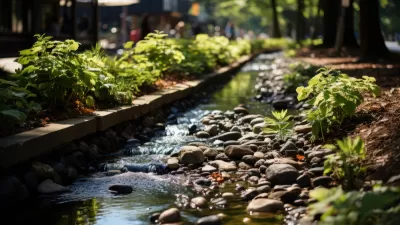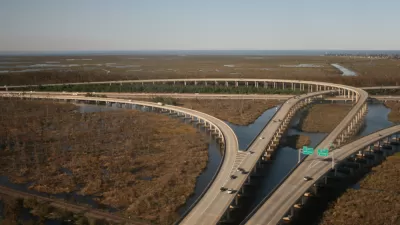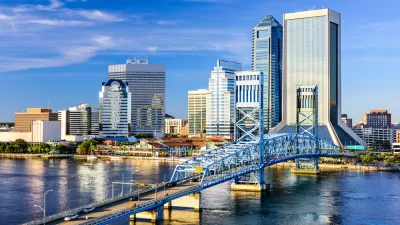A Rutgers professor restores natural processes to help shorelines adapt to rising sea levels.
In The Harvard Gazette, Alvin Powell reports on the work of Professor Steven Handel, who is using green infrastructure to combat the phenomenon known as "coastal squeeze."
Coastal squeeze occurs in habitats that exist between a naturally migrating shoreline and a man-made immoveable barrier, like a road.
Or as Powell writes, "what people may view as scenic coastal roadways, the natural communities of plants and animals may experience as terminal barriers, blocking their migratory response to rising seas."
Handel is a Rutgers professor visiting who worked on the development of the Fresh Kills landfill site on Staten Island; his approach is not unlike what the Dutch have been doing for many years, or what is now being done in coastal cities like San Francisco.
"The approach Handel described begins with accepting that the seas will rise. It takes projections for how sea levels will change familiar landscapes and moves forward from there, looking for opportunities such as inland water bodies and waterways that may soon be brackish, making them potential sites for future salt marshes. Newly engineered marshes can replace those drowned by the rising tide, buffer storms, and provide breeding grounds for fish and birds. Other opportunities lie in brownfields and abandoned sites that could be rehabilitated into places where communities meet the sea and around which fresh development can grow."
In cities across the United States, green infrastructure is an increasingly popular tool to mitigate the effects of climate change, especially in the wake of natural disasters.
FULL STORY: Transforming the ‘coastal squeeze’ from climate change

Alabama: Trump Terminates Settlements for Black Communities Harmed By Raw Sewage
Trump deemed the landmark civil rights agreement “illegal DEI and environmental justice policy.”

Study: Maui’s Plan to Convert Vacation Rentals to Long-Term Housing Could Cause Nearly $1 Billion Economic Loss
The plan would reduce visitor accommodation by 25% resulting in 1,900 jobs lost.

Planetizen Federal Action Tracker
A weekly monitor of how Trump’s orders and actions are impacting planners and planning in America.

Wind Energy on the Rise Despite Federal Policy Reversal
The Trump administration is revoking federal support for renewable energy, but demand for new projects continues unabated.

Passengers Flock to Caltrain After Electrification
The new electric trains are running faster and more reliably, leading to strong ridership growth on the Bay Area rail system.

Texas Churches Rally Behind ‘Yes in God’s Back Yard’ Legislation
Religious leaders want the state to reduce zoning regulations to streamline leasing church-owned land to housing developers.
Urban Design for Planners 1: Software Tools
This six-course series explores essential urban design concepts using open source software and equips planners with the tools they need to participate fully in the urban design process.
Planning for Universal Design
Learn the tools for implementing Universal Design in planning regulations.
Caltrans
Smith Gee Studio
Institute for Housing and Urban Development Studies (IHS)
City of Grandview
Harvard GSD Executive Education
Toledo-Lucas County Plan Commissions
Salt Lake City
NYU Wagner Graduate School of Public Service





























